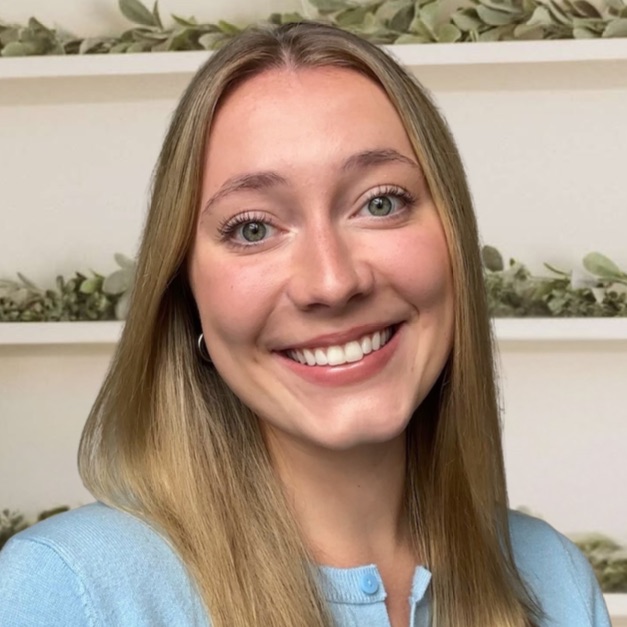Everyday Impact of Trauma
Trauma can make everyday life in Jacksonville feel harder, like struggling to focus at work, snapping at loved ones, or feeling worn out before the day even starts. You might avoid crowded spots like Jaguars games or the Town Center, or feel on edge with sirens, helicopters, or afternoon thunderstorms. Even simple errands—driving over the bridges, grocery shopping, school drop-off—can bring up worry or memories you didn’t expect. If this sounds familiar, you’re not alone, and support is available here.
How to Recognize Trauma
- You might notice strong reactions to reminders of a difficult event, like feeling panicked during summer storms or hurricane alerts, or avoiding certain bridges or stretches of I‑95/I‑295 after a crash.
- Sleep can be hard—nightmares, restless nights, or waking up on edge—and it may be difficult to concentrate at work or school.
- Feeling jumpy or “on guard” is common, such as startling at Navy jets overhead, fireworks at the beach, or loud crowds at a Jags game.
- You may avoid places that bring back memories, like a specific neighborhood, a hospital, or crowded spots like the Riverside Arts Market.
- Irritability, sadness, numbness, or pulling away from friends and family can show up, along with headaches, stomach issues, or tension that don’t seem to have another cause.
Contributing Causes and Risk Factors
Trauma
can arise from a mix of biological factors, such as genetics and how the brain and stress hormones respond to threat. Psychological contributors may include earlier adverse experiences,
grief
, or limited coping supports that make stress feel overwhelming, even long after events pass. Environmental influences in Jacksonville—like exposure to violence or accidents, economic hardship, severe storms, or lack of safe housing and community resources—can also increase risk. Trauma is multifactorial and never a personal weakness; seeking support is a courageous step toward healing.
Treatment and Recovery Options
Evidence-based therapies for trauma can help you feel safer, regain control, and reconnect with life. Treatments like Trauma-Focused Cognitive Behavioral Therapy (TF-CBT), Cognitive Processing Therapy (CPT), Prolonged Exposure (PE), and Eye Movement Desensitization and Reprocessing (EMDR) reduce flashbacks, avoidance, and negative beliefs by safely processing memories and building coping skills. Many people also benefit from skills-focused approaches like
DBT
for emotion regulation and from medications such as SSRIs to ease anxiety, depression, and
sleep
problems. Group therapy and family involvement can strengthen support and reinforce progress. In Jacksonville, you can find clinicians trained in these proven methods and begin a clear, step-by-step plan to recover.
Jacksonville offers strong support systems to keep you moving forward between sessions. You can access local support groups, peer communities, and trauma-informed classes like mindfulness, yoga, and gentle movement through community centers and wellness studios. Community mental health clinics, private practices, and area veteran services provide sliding-scale options, specialized care, and coordinated resources. Build a self-care routine with grounding exercises, sleep and movement goals, and guided apps for breathing and relaxation, and pair it with regular therapy appointments. If you need help finding services or immediate support, call 988 for the Suicide & Crisis Lifeline or dial 211 to locate resources in Jacksonville.
Why Professional Guidance Matters
Healing from trauma is safer and more effective with a licensed clinician who’s trained to use evidence-based therapies and adhere to strict standards of ethics and supervision. Licensure matters because it verifies competency, protects your privacy, and helps ensure consistent, high‑quality care whether you meet in person or via telehealth. Working with in-network providers can also reduce costs through insurance coverage. MiResource helps people in Jacksonville quickly filter for licensed, in‑network clinicians offering both local and telehealth options.
Where to Begin Your Therapist Search in Jacksonville
Start by entering “Trauma” in the MiResource directory search and selecting Jacksonville as your location. Then refine your results by filtering for specialty, preferred therapy approach, insurance accepted, language, current availability, and your Jacksonville neighborhood. Read profiles to compare experience with trauma-focused care and note practical details like session formats and hours. Remember, the most important factor is personal fit—choose a therapist you feel comfortable with and who aligns with your goals. Explore the MiResource directory now to find the right Trauma therapist in Jacksonville.
Local Support and Community Connections
Jacksonville’s size and diversity shape how people experience and heal from trauma. Military and veteran families connected to NAS Jacksonville and Naval Station Mayport, first responders, and port workers often carry service‑related stress, while Black, Latinx, and LGBTQ+ communities (including youth supported by
JASMYN
) may face historical inequities, discrimination, and community violence. Hurricanes, displacement, and housing instability can compound trauma, especially for families on the Northside, Westside, and in Arlington. If you’re coming from the Beaches, Mandarin, or Riverside/Avondale, long travel times and childcare barriers can make in‑person care harder—consider providers offering evening hours or telehealth to reduce commuting stress.
Plan around local logistics: JTA buses and First Coast Flyer BRT connect Downtown, Arlington, and the Southside; the free Skyway serves the urban core, but coverage thins in outer neighborhoods. Major corridors like I‑95, I‑295, and the Matthews/Dames Point bridges can be congested during rush hours; many clinics have parking but confirm before you go. For trauma support, consider the
Women’s Center of Jacksonville
(Rape Recovery Team),
Hubbard House
(domestic violence),
Sulzbacher
(homeless services with behavioral health),
Child Guidance Center
(TF‑CBT for youth),
Daniel Kids
,
Jewish Family & Community Services
counseling, the
Steven A. Cohen Military Family Clinic
(for post‑9/11 veterans, service members, and families),
Wounded Warrior Project,
and
The Fire Watch
(veteran suicide prevention). In a crisis, call/text 988 or dial 911. Emergency and hospital resources include
UF Health Jacksonville
(Level I Trauma Center),
Wolfson Children’s Hospital
,
Baptist Medical Center Jacksonville/South/Beaches
,
Ascension St. Vincent’s Riverside/Southside
,
HCA Florida Memorial Hospital
,
Mayo Clinic Florida
, and
HCA Florida Orange Park Hospital
(Level II Trauma).
If You Need Help Right Away
Seek emergency care for trauma symptoms like thoughts of harming yourself or others, feeling unsafe, severe panic or flashbacks, uncontrollable agitation, confusion, loss of consciousness, or substance use that puts you at immediate risk. Call or text 988 for the Suicide & Crisis Lifeline, call 911 if you’re in immediate danger, or text HOME to 741741; locally, call LSF Health Systems’ 24/7 Access to Care Line at 877-229-9098 or United Way 211 at 904-632-0600 for connections to nearby services. Jacksonville-specific mobile crisis help includes Child Guidance Center’s Mobile Response Team for youth and young adults (24/7: 904-982-4911). For in-person care, go to the nearest emergency department such as UF Health Jacksonville (904-244-0411), Baptist Medical Center Jacksonville (904-202-2000), Memorial Hospital Jacksonville (904-399-6111), or Ascension St. Vincent’s Riverside (904-308-7300); if your situation is urgent but not life-threatening, consider CareSpot Urgent Care (multiple locations: 904-854-1414).
Questions You May Have
1. What does living with Trauma feel like?
Living with trauma can feel like being on alert even when you’re safe, with sudden noises, crowds, or certain places around Jacksonville stirring up memories or fear. You might have trouble sleeping, feel tense or jumpy, or go numb and disconnected just to get through the day. Some days you may feel okay, and other days even small tasks feel exhausting—both are normal. Everyone’s experience is different, and needing extra time, space, and support is completely valid.
2. How do professionals diagnose Trauma?
In Jacksonville, trauma can be diagnosed by licensed mental health professionals such as therapists, psychologists, and psychiatrists, and sometimes by primary care providers who refer you to a specialist. The process usually involves a calm conversation about your experiences and symptoms, brief screening questionnaires, and reviewing your history to see if it fits recognized criteria (like DSM-5), while also ruling out other causes. There are no “pass/fail” tests—just supportive questions to understand what you’re going through and what would help. It’s a collaborative, respectful process at your pace, focused on your goals, not judgment.
3. What treatment options usually help with Trauma?
In Jacksonville, effective, evidence-based options for trauma include trauma-focused cognitive behavioral therapy (TF-CBT), EMDR, Cognitive Processing Therapy (CPT), Prolonged Exposure, and approaches that integrate mindfulness or somatic techniques; some people also benefit from medications like SSRIs alongside therapy. Treatment is always personalized to your history, symptoms, and goals, and a provider will work with you to build a plan that feels safe and manageable. Many people see meaningful relief, improved coping, and stronger relationships with these therapies. If you’re unsure where to start, exploring your options and talking with a trauma-informed therapist here in Jacksonville can help you find the right fit.
4. How do I explain my Trauma to others?
It’s your choice if, when, and how much you share—start small and only with people you trust in Jacksonville. You can use simple “I” statements like “I’ve been through a traumatic experience, and I’m focusing on healing; I’m not ready for details, but here’s how you can support me.” Set clear boundaries: decide topics that are off-limits, let others know if questions feel overwhelming, and choose a time and place that feel safe. With coworkers, keep it brief and needs-focused (e.g., “I’m managing a health matter and may need flexibility”) without sharing personal details. Remind yourself that you deserve support and validation; it’s okay to pause or end a conversation if it stops feeling safe.
5. What first step should I take if I think I have Trauma?
Start by taking a quiet moment to reflect on what you’ve been experiencing and how it’s impacting your daily life. Share what you’re going through with a trusted friend or family member to get support. Use the MiResource directory to find Trauma-informed therapists in Jacksonville and review a few profiles that fit your needs. Reach out to one or two providers and schedule an initial consultation to begin care.













